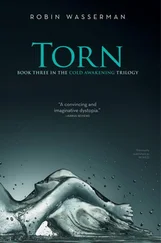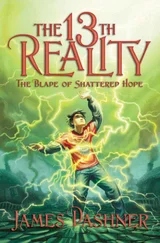Screwing everything that moved? “Experimenting,” I suggested, experimenting myself with a little tact.
“Right.”
“Or maybe she finally figured out who she wanted to be with,” I said. Not sure whether I believed it.
“Maybe,” Ani said, sounding like she wasn’t convinced either. “But I think it’s more than that. She never really had a chance to be anybody before, you know? She was living on the network—it wasn’t real. So after the download, it was like she had to start all over again. Figure herself out. Maybe she’s finally doing it.” She gave her wrist two sharp taps, and the glowing green numerals of a skintimer appeared. “We should go, or we’ll be late,” she said. “You sure about this? Seeing Auden like that, it could be—”
“Who knows if we’ll even get there,” I said with as much nonchalance as I could dredge up. “Could get stopped a mile from the house.” The penalty for driving without a human in the car was just a fee, for now, along with confiscation of the vehicle. But our funds were limited. Thanks to some creative accounting, we still had access to plenty of credit under a variety of fronts and assumed names, but the bulk of it had been seized—losing a car was a less than desirable eventuality. And I’d had enough of the secops for one lifetime.
“We’ll be fine,” Ani said. “They’re not enforcing the restrictions. It’s just a scare tactic.”
“Then let’s go,” I told her. “Find out if there’s anything to be scared about.”
Find out what’s going on with Auden, I thought.
If he means everything he says about us.
About me.
No, nothing to be scared of at all.
The Temple of Man wasn’t a building. It was hundreds of acres of buildings, sprawling, flat concrete blocks spiderwebbed together by tunnels and skyways. Within a mile of the Temple, the countryside gave way to an unbroken stretch of asphalt in every direction. No trees, no grass, no relief from the gray cement, the same color as the dingy sky. Only one structure violated the horizontal skyline, a narrow white tower shooting three hundred feet into the air, widening at the top for a story-high globe of windows. It reminded me of the pics I’d seen of the Middle East, after the war started but before the bombs dropped, ending the war and all the warriors in a flash of atomic fire. In the pics, tall spires had jutted from domed temples, strange, ornate lighthouses dotting the horizon, and as a kid I’d often imagined the bored but devoted keepers who might have lived up there in the sky, tending to their god. I wondered if they’d been the first to see the bombs, fire streaking through the night, and whether they’d had time to wonder or panic—or jump—before the sky exploded.
“It’s where they used to track the planes taking off,” Ani said, following my gaze.
“Seriously?” Maybe it was a good thing the energy crisis had destroyed the airline industry. A million planes flying around and the only thing keeping them from crashing into one another was a few guys looking out the window? “How many you think used to fly in and out of here a day?”
Ani shrugged, taking in the miles of paved runway stretching to the horizon. “Twenty?” she guessed. “Maybe thirty?”
It was impossible to imagine. Sure, once they’d figured out how to build hybrid biofuel planes, they’d gotten them back in the air, but most were corp-owned cargo flights. If you had enough credit, you could always track down a plane to get you where you needed to go. But if you were unlucky enough to count as “most people”—and most people were—cost and restrictions forced you to go by ground. Or stay home. Just as there weren’t enough roads to go around, it had turned out there wasn’t enough sky. Which meant the majority gave up their wings so a minority could fly.
“Not much of a temple,” I said as we headed toward one of the largest of the concrete block buildings, falling into step with a bedraggled crowd. I kept my head down and my voice low. “I thought these things were supposed to look like fairy tale castles or something. High ceilings, stained glass. Pretty .”
“The old ones did,” Ani said. “And some of the Faither ones still do. But Rai Savona’s not a Faither anymore, remember? Now he says that all those churches and stuff are bad for you, that they make you feel small and unworthy. He likes this building because it’s low and unimpressive. The most impressive part of any temple should be the humans inside it, he says. We’re sacred, he says. Because God dwells inside of us.”
“Them,” I said.
“What?”
“You said ‘us.’ But God doesn’t dwell in mechs, not according to Savona. Right?”
Ani ducked her head. “Right. Them. Anyway, that’s what he says.”
“And people actually buy that?” Thinking, Sounds almost like you buy it.
She shrugged. “Faithers are used to it. Most of them just meet where they can. Basements, cafeterias. Dead buildings are good—libraries, those old vid theaters. And in the cities, they’re lucky if they can squat in one of the tower rooms for a few months, before—” She finally noticed how I was looking at her. “What?”
“You know a lot about this,” I said. “Faithers.”
Ani looked away, pinning her eyes back on the tower. “There are a lot of them in the city. Especially in the Craphole.” She rarely talked about it, the place she’d grown up, a dumping ground for children whose parents couldn’t be found or, like Ani’s, couldn’t be bothered. I’d never heard her refer to it as anything but the Craphole. “The government made sure we didn’t starve,” she said. “But that was it. The Faithers were the only ones who remembered we were alive. They showed up every once in a while with clothes, sometimes even med-tech.” She shrugged. “I don’t know, I guess they thought God told them to do it or something. Crazies.”
“So you didn’t become one.” I wasn’t sure whether I was asking or telling.
“Believe in some invisible, all-powerful guy who was going to fix everything as long as I was a good girl? Or in the fact that, in the end, bad things happen to bad people, and good things happen to good ones?” She shook her head, then stretched her arms wide, fingers splayed. “I believe in this,” she said. “This body. And it didn’t happen because I was good. It happened because I was lucky.”
I hesitated. If she rarely talked about her childhood, she never talked about how she’d ended up as a candidate for the download. “Do you know why they picked you?” I asked. We stepped through the doors into an enormous space, thick pillars stretching up to ceilings so high, I felt almost like we were still outside. It seemed to be some kind of clearing zone, with clumps of orgs scurrying back and forth, directed by officious-looking Brothers in iridescent robes. LED screens lined the walls, announcing service times and meal times and scrolling name after name of Brothers and Sisters new to the cause. There were hundreds of them.
“They picked all of us,” she said. “The ten of us who slept in my room, at least. We went to bed in the Craphole—and when we woke up, we were in the hospital. All in the same room together that first day, I guess so we didn’t freak out. They wouldn’t tell us what we were doing there. Just did a bunch of tests. Then started taking us away one by one.”
“Do you still talk to them?” I asked, wondering why I’d never met any of them. “Are there any at Quinn’s place?”
“I never saw them again,” Ani said flatly as we followed the orgs through a series of metal detectors and bioscanners and were loaded onto a narrow moving sidewalk. Fortunately, most of the crowd had rushed ahead of us, and the stragglers barely glanced at us as we passed.
Читать дальше












